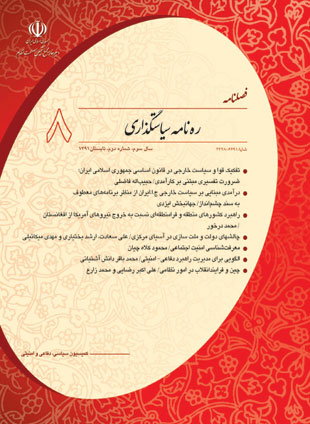Separation of Powers and Foreign Policy in the IRI Constitution: The Necessity of an Interpretation based on Efficiency
Author(s):
Abstract:
Despite the variation in political systems (parliamentary, presidential...), the executive branch is regarded to be in charge of foreign policy. The IRI Constitution has failed to draw a clear line between the limits of authority and the jurisdictions of legislature and executive in respect to decision-making and law-making in the realm of foreign policy, and led to often contradictory interpretations, although it is committed to the principle of Separation of Powers. This article aims to illustrate some of the causes for this constitutional ambiguity. Relying on the interpretation of some articles, it also emphasizes the need for a new constitutional interpretation concerning foreign policy which is based on the principle of efficiency and consists in features such as decrease in the number of institutions responsible for foreign policy and their concentrations in executive on the one hand, and parliamentary control over executive using legal instruments like hearing and inquiry on the other.
Keywords:
Language:
Persian
Published:
ره نامه سیاستگذاری سیاسی، دفاعی و امنیتی, Volume:3 Issue: 2, 2012
Page:
9
https://www.magiran.com/p1080235


